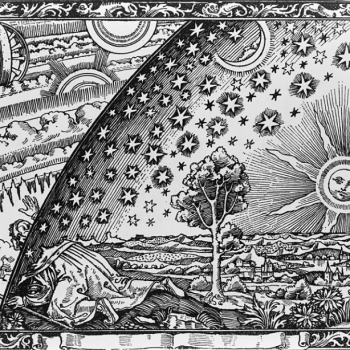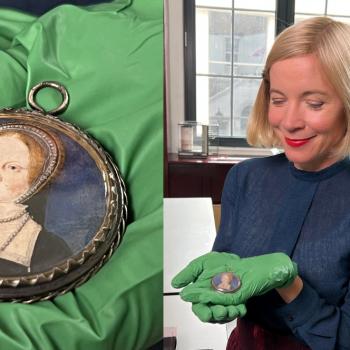The elders quorum experience was better. After all, I only had half an hour to mess up instead of a whole month. As I prepared for the lesson (which took all week), I found myself contending with all the temptations of the Three Sedating Sins. I realized how engrained they are in my own psyche, that everyone would subconsciously expect at least one of these models, and that I was completely unwilling to give it to them. I also realized that at every point, I would have to be vigilant lest we succumb to the gravitational pull of one of the Sins. This was no easy task.
Throughout the week, I constructed practice classes in my mind, posing questions and imagining various responses. It took me all week -- hours of conversation with my wife, plus actually reading the lesson materials -- to come up with some questions I thought I could pose constructively. I thought the questions could work because they drew on values that have equal weight within a Mormon worldview but contradicted each other at the same time.
The lesson topic was work. So I decided to see if the elders would be willing to assert that there is some hierarchy of values when it comes to work -- that certain kinds of work are more valuable than others. This was easily done. We also came to an agreement that self-reliance was a good thing. Once these two values were established, I asked them, "So what about Jesus? He was always living off other people. He wasn't self-reliant." The answer came back, "Well, yeah, but he was doing the most important work."
"Which is?"
"The work of God."
"Which we defined as the most valuable work?"
"Right."
"That could be true -- after all, ‘seek ye first the kingdom of heaven.' But wait. Aren't we supposed to be like Jesus? Who here is willing to forsake all right now and teach the gospel on the streets and in the wilderness of Alaska?"
"But that was Jesus' mission. Not ours."
"Really? Well then, what about my mission? I just got a master's degree in creative writing. I spent two hours a day for a year writing a screenplay. That's more than seven hundred hours. It's very likely that no one will ever produce my screenplay. It's possible that it's not even worth reading. And even if it does get produced, it's only a romantic comedy with no socially redeeming value. Where on the hierarchy of values should we put my seven hundred hours?"
That one took us a while to work through. Some quorum members thought it was good work because it went toward my (currently nonexistent) career. But career-related work had ranked fourth on the hierarchy of values we had come up with earlier. Shouldn't I have been using that time to teach the gospel or work at a soup kitchen -- first-tier values?
Interestingly, they started talking about personal desires and personal missions and started to wonder if fulfilling one's personal mission, no matter how ludicrous and socially unconstructive, didn't rank up there with doing God's work. "Even if my personal mission is to write bad screenplays that no one will ever read?" I wondered aloud.
This seemed a bit far-fetched, even to me. But some of them grunted their consent. One guy even said that President Hinckley had counseled the Saints to follow the Spirit in setting their priorities. He even admitted, after being reminded of a few odd stories from the scriptures, that the Spirit could be quite unpredictable in the establishment of values, as illustrated by Nephi's offing of Laban. Then one of the quorum members started arguing against a hierarchy of values, saying that he thought values should be more fluid.
My type of guy.
When I ended the lesson, our elder's quorum president, a good man, whipped out the manual and read a passage he thought was important. It told us that work was a good thing. The Pep Rally had reared its head -- but only after I had sat down.
At one point in The Hitchhiker's Guide, Zaphod Beeblebrox, a politician and (ironically) criminal, is brought to the Total Perspective Vortex and forced to submit to its machinations. The governor's pardon fails to arrive, and the switch is thrown. The machine hums to life and performs its dread task. When the attendant opens the door, expecting to find but a vapor where Zaphod once stood, he is shocked to find Zaphod grinning hugely. "Just as I thought," Zaphod says, "I really am the center of the universe."
The thing Zaphod didn't know was that at the moment, he was actually inside an artificial universe that fit in an attaché case. He had stepped into a fake Total Perspective Vortex machine designed especially for him in order to smuggle him past the murderous Frogstar Fighters. Had Zaphod been in the real Total Perspective Vortex, he would have become a whiff of ionized air.
This story is important in two ways (Whack-a-Moral advisory now in effect): First, it illustrates the narrow attitude I see underlying overuse of the Three Sedating Sins. Second, and more important, the story calls into question everything I have written in this essay. It is entirely possible that I have been speaking to you from my own little attaché case universe, of which I am the center. In which case, my exhortations have little to recommend themselves. The only reason your time spent reading this may not have been wasted is if my neuroses are also yours.




